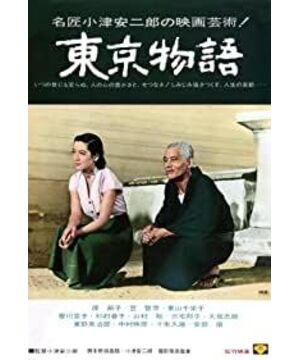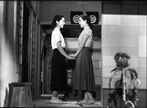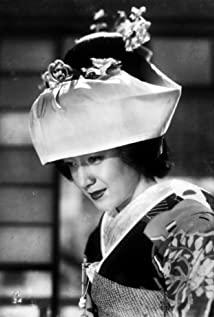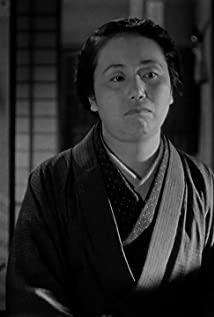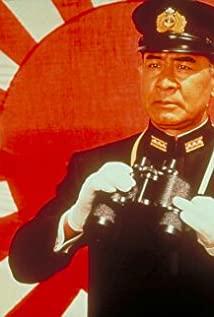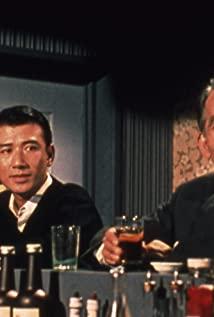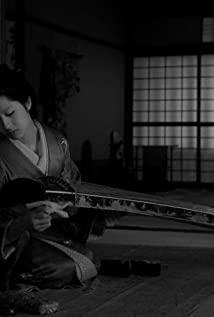The eldest daughter and mother, the dramatic relationship between mother and daughter is pointed out by the daughter's words, "Mom, you have grown taller again", "How can I grow taller!" Relative to the thinness of the tall mother, a potentially antagonistic relationship was established. "The school held a parent-teacher conference, and my mother was so tall, which made me very depressed in front of my classmates." This is a character relationship model that can only be created by a master film artist. People have established a "fan political relationship" with anyone since birth. ”, including daughters and mothers. During the viewing of the movie, I wanted to strangle the eldest daughter several times in anger. Why? The director relentlessly shaped her selfishness. In fact, in essence, a movie wants to express a person's human nature in depth and complexity, not by expressing "complexity", but by expressing "simple". The master's method is: I only give you a simple character, some simple things, simple from beginning to end, and then when you are inadvertently, I use an ambiguous drift signifier to pull you into the vortex---subtextual Bottomless pit (this kind of drift in the film can refer to the watch left by the father-in-law to the young daughter-in-law, the clothes of the deceased mother). This is also done based on the nature of movies, because movies are not literature, and no matter how complex the psychology or subconsciousness of characters in literature can be explained in language (of course, literature has the ambiguity of literature), but movies express complex human nature or psychology. Similar to what a psychopath does, when the psychopath is laughing, it's very simple, he is laughing, not crying, but will you laugh along? On the contrary, you will be scared to cry; when a psychopath is crying, he is crying, not laughing, but the reason he is crying may not be the reason he narrates. This is what Freud called the symptom, the movie is a direct presentation of the symptom point, what you see is what you see, but what you see is not what you see. Is the daughter selfish? Yes, because the symptoms show that she is stingy and stingy, and that's what we see, but what kind of selfishness is her selfishness? It's relational selfishness, selfishness is not absolute, of course she can be selfish to anyone, though then she's not what we would call "absolutely" selfish. In the words of a young daughter-in-law, "When a woman gets married, she has her own life." This is a kind of political relationship. A woman gets married and forms a relationship with her husband, in which the husband and wife can eat expensive food together. Dim sum instead of eating with my parents. In the video, the director basically did not give a panoramic view of the neighborhood where his sons and daughters are located, all of which are medium and close shots. A narrow and cramped visual partition in space fits well with this relatively isolated social relationship.
The characterization of the eldest daughter is what the movie can show directly, and it is the essence of Hollywood. The director's portrayal of the little daughter-in-law really made me feel the power of Ozu's films. The young daughter-in-law is beautiful, widowed, lives alone and does not remarry, and her own children do not receive them. Instead, a widowed daughter-in-law treats her in-laws with courtesy, borrows food and drinks to entertain them, and gives her mother-in-law pocket money. It's all directly on the screen, we see "the best woman in the world" (that's what my mother-in-law later said to her husband), but we're suddenly shocked because it's all a "ceremony" ', including her pretty pale face. After her mother-in-law died, the dialogue between her and her father-in-law really expressed the director's intention (note that the director used dialogue to express and is good at revealing complex human nature or psychological language), the father-in-law said: "Your mother-in-law and I have raised so many children, I want you to help, so much help, you are not even a relative. Mom said that you are the best woman she has ever met, and we are very happy to see you married, it is true." The little daughter-in-law said: "Actually, I'm not as good as you think, moms are really over the top. I often don't think about your sons. When I can't sleep I often wonder what I'll be like if I've been like this. Days pass, nights It came, but nothing happened and I felt a little lonely. My heart really wanted to wait for something.” Old people, especially those who have reached the end of their lives, must be the smartest moviegoers. Because, they can see complexity best in simplicity, which is the essence of cinema, to repeat: "Cinema is not literature, and it cannot be directly revealed by words". If there is a god in this world, he must be an old man. This old man persuaded his former daughter-in-law to remarry like a god, and even if the daughter-in-law was Joan of Arc, she would feel guilty.
Before the younger daughter-in-law talked to her father-in-law, the director arranged a conversation between her and her sister-in-law. The sister-in-law bluntly expressed her selfish dissatisfaction with the eldest sister, saying that her sister would take away her mother's clothes as soon as her mother died. The younger daughter-in-law said, "A woman will have her own life when she is married, and one day I will be like that." Obviously, the two people are not equal in the "direct" and "complex" dialectical communication. This scene laid a good foundation for the dialogue between the father-in-law and the daughter-in-law.
The complexity of the film is achieved through simplicity, which requires skill, and the master's skills often leave no trace. I want to ask, the mother is so tall and the second daughter is so thin, what would she do with a bunch of ill-fitting clothes?
View more about
Tokyo Story reviews


